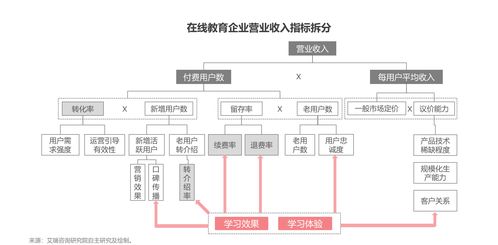在线英语教育机构哪家好
Online English education has burgeoned into a vast and diverse field, offering learners worldwide access to language learning resources and instruction. Let's delve into the key aspects of this industry:
1. Diversity of Platforms
Online English education encompasses a wide array of platforms, ranging from dedicated language learning websites to mobile applications. Each platform caters to different learning styles and preferences. Some platforms offer structured courses with comprehensive lessons, while others provide more casual and interactive learning experiences through language exchange or gamified activities.
2. Pedagogical Approaches
Various pedagogical approaches are employed by online English education institutions, including:
- Communicative Language Teaching (CLT): Emphasizes reallife communication and interaction, often through speaking and listening activities.
- TaskBased Learning: Focuses on completing tasks that simulate realworld language use, promoting practical language skills.
- Adaptive Learning: Utilizes technology to personalize the learning experience, adjusting content and difficulty based on the learner's progress and preferences.
- ContentBased Instruction: Integrates language learning with subject matter content, such as teaching English through science or history topics.
3. Target Audience
Online English education serves a diverse range of learners, including:
- Students: Seeking to improve their English language proficiency for academic purposes or to enhance their career prospects.
- Professionals: Looking to develop English language skills for global business communication.
- Language Enthusiasts: Interested in learning English for personal enrichment or travel.
- Exam Candidates: Preparing for standardized English proficiency tests such as TOEFL or IELTS.
4. Technologies Utilized
Online English education leverages various technologies to deliver content and facilitate learning:
- Interactive Multimedia: Incorporates audio, video, animations, and interactive exercises to engage learners.
- Virtual Classrooms: Enable realtime interaction between instructors and students through video conferencing tools.
- Artificial Intelligence (AI): Powers adaptive learning systems, chatbots for language practice, and automated assessment tools.
- Mobile Learning: Provides access to English learning resources anytime, anywhere through smartphone apps.
5. Quality Assurance
Ensuring the quality of online English education involves various measures:

- Qualified Instructors: Institutions employ experienced and certified English language teachers who are proficient in online teaching methodologies.
- Curriculum Design: Courses are designed following recognized language learning frameworks and standards, such as the CEFR (Common European Framework of Reference for Languages).
- Assessment and Feedback: Regular assessment of students' progress and providing constructive feedback are integral parts of the learning process.
- Customer Support: Prompt and effective customer support services address learners' queries and concerns.
6. Emerging Trends
The landscape of online English education continues to evolve, with several emerging trends:
- AIPowered Learning: Increasing integration of AI for personalized learning experiences and automated language assessment.
- Microlearning: Short, focused learning modules catering to learners' busy schedules and attention spans.
- Social Learning: Platforms incorporating social features for collaborative learning, language exchange, and peer feedback.
- Virtual Reality (VR) and Augmented Reality (AR): Immersive technologies offering realistic language practice scenarios and cultural experiences.
Overall, the realm of online English education presents a wealth of opportunities for learners to enhance their language skills conveniently and effectively, regardless of their location or schedule.
关键词:网络教育英语专业有用吗网络教育英语历年真题网络教育学院英语怎么说网络教育英语短文